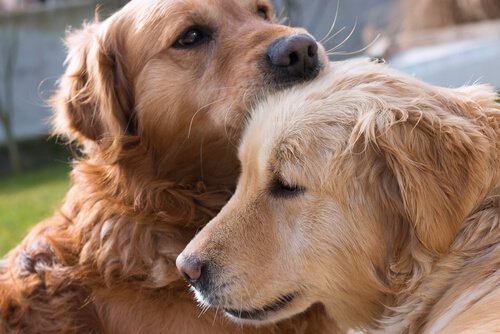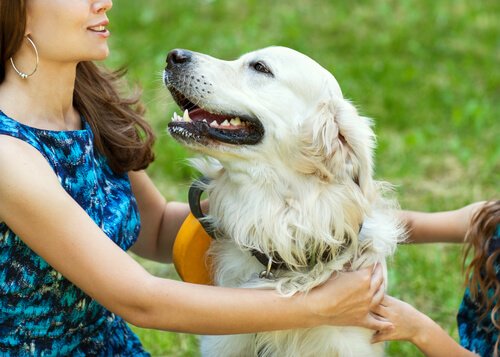Do dogs have feelings?

Everyone who has or has had a dog knows that dogs have feelings. They feel love, in a pure and selfless way. Lots of people think that the idea that animals have feelings is right out of a fairy tale. Others claim that having feelings is a kind of “deficit” that dogs were bred to have, after millennia of domestication. They say that feelings are a learned behavior, a way to ensure that humans feed and take care of them.

Studies and investigations begin
Scientists have been saying that dogs feel no genuine emotions related to their behavior. However, with the birth of ethology (a discipline that studies animal behavior) in the twentieth century, the matter began to be studied thoroughly.
Although studies show that dogs can feel love, many people don’t fully accept these results. Dogs also exhibit other feelings, such as joy and sadness. In addition, dogs are perfectly capable of identifying these emotions in other dogs and in humans.
Dogs have complex brains that are capable of more than simple responses to positive or negative stimuli. What is most surprising is that the processing of emotions in a dog’s brain is just as complex as in the brains of people.
Oxytocin: the “love hormone”
One of the most revealing discoveries was that dogs (and cats) produce oxytocin. This hormone is involved with the activation of neural circuits related to pleasant sensations, such as love.
The presence of this chemical in the brain, both in animals and in humans, plays a role in the establishment of close bonds between mothers and their children. In domestic dogs, oxytocin strongly influences their sweet, sociable nature and how they bond with their owners.
Dogs feel love, but only towards who deserves it
Ethologists, neurobiologists and other specialists also found that a dog’s ability to feel love is discretionary. This means that some dogs are more affectionate than others. Dogs aren’t indiscriminately sweet towards every human.
Masters who use violence to “train” their dogs or who mistreat them often will generate fear and anxiety in their dogs. These dogs won’t feel love towards their owners.
Family and pack are the same thing
Although there are regrettable exceptions, most families that adopt dogs make their pets “full members” of the household. In some cases, dogs may enjoy more privileges than some humans they live with.
Dogs revere their owners and treat them like their pack or family. That’s why dogs have such solid, life-long ties with their owners. Many dogs are willing to give their lives for their loved ones.
Dogs feel love, joy, sadness and jealousy
Ethologists try to determine how and if dogs feel emotion. What is behind their love and affection? Studies show that dogs can rejoice and grieve in response to stimuli from the environment. Dogs can also identify these moods in people.
A dog’s natural instinct is to try to comfort and support to people around them who are visibly upset. Dogs even try to comfort upset strangers.
A dog owner’s emotions can influence his dog’s emotions. If the people around him are happy, he’ll get excited and almost seem to smile. Like in humans, one of the emotions that dogs have the hardest time hiding is jealousy.

How dogs express love
Many dogs are very expressive when demonstrating their love and other feelings. One of the most obvious signs that your dog loves you is frantic tail wagging as he greets you. Other typical signs are licking your hands and face and begging you to play with him.
If any member of the family is sick, a dog won’t move from their bedside. He wants to be there to comfort and support them.
This text is provided for informational purposes only and does not replace consultation with a professional. If in doubt, consult your specialist.